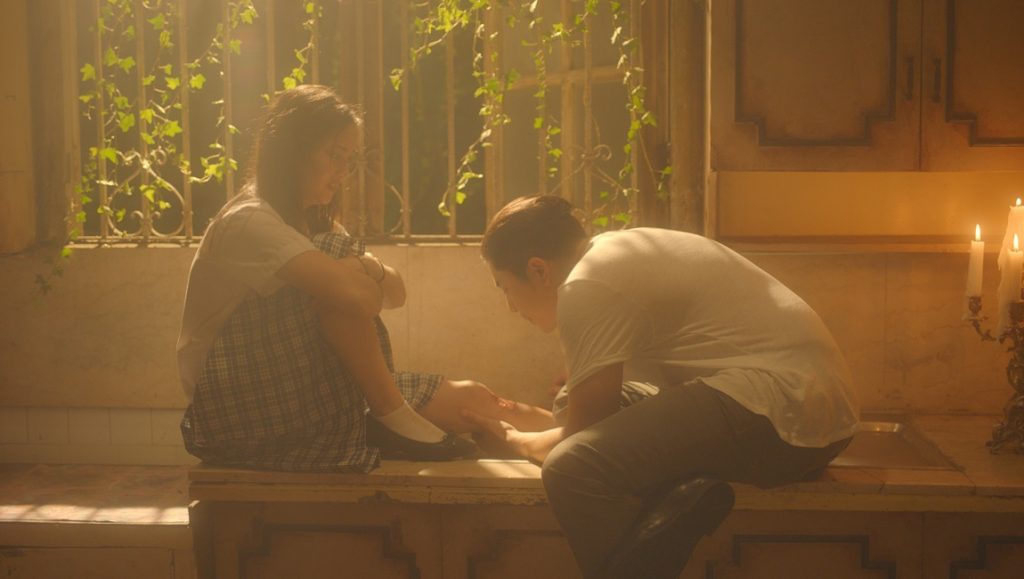Celebrity culture is a cursed behemoth of cringe-inducing endorsement. With each successive year, time’s cyclicism is once again proven amid an abundance of needless drama and controversy. Apology videos tacitly condoning toxic behavior are now essentially a joke; in an environment so crazed for attention and clout, emotional abuse too often comes as part of the package of human connection. That’s the rough thesis of Antoinette Jadaone’s latest feature, Fan Girl, a tense Filipino coming-of-age drama that frequently attempts to dissect the toxic modes of celebrity entitlement. Captured in claustrophobic 4:3 aspect ratio, Jadaone consistently fixes her focus on protagonist Jane (Charlie Dizon), which over the course of the film then traps the viewer in various positions of social awkwardness and misconstrued power dynamics.
The premise of Fan Girl is conceptually simple on paper, yet Jadaone frequently implements clever framing and blocking to add an additional layer of subtext to the film’s narrative crux. Fan Girl is littered with clever imagery that emphasizes its symbols of division and power — a prominent example being the initial inciting event that divides Jane from her idol, Paulo (actor Paulo Avelino, playing a version of himself), in a moving truck. Jane is situated in the back of the truck — surrounded by an abundance of movie posters and gifts — as Paulo drives from the front seat, unaware of her presence. Another such notable shot comes at the moment of Jane’s verbal interaction with Paulo, where she is first seen spying on her idol from below, Paulo’s body framed on the upper floor.
Likewise essential and beneficial to the film is that it never shifts from its central perspective. Fan Girl is Jane’s story, after all, told through her eyes and informed by her fantasies. Each reveal, then, layers Paulo’s duality, as the film’s critical angle is prominently shown through Jane’s celebrity-fixated imagination that refuses to accept reality. It isn’t until the film’s third act that this facade breaks to unveil an ugly (if obvious) truth — that emotional abuse is largely, systemically forgiven for those in positions of power. Idolization is inherently linked to the concept of normalization, and through Jane’s eyes and warped perception, the viewer witnesses two cases of severe abuse that seem to stem from two different people in two different social constructs. Perhaps, then, more time and clarity should have been dedicated to this tense third act, which deepens and complicates the film’s ideas, especially when considering the film’s crucial final moments. But thanks to its interrogations — and clever mode of presentation — Antoinette Jadaone’s Fan Girl proves to be an endlessly fascinating character study that never once settles for easy answers.
Published as part of IFFR 2021 June Programme — Dispatch 2.


Comments are closed.